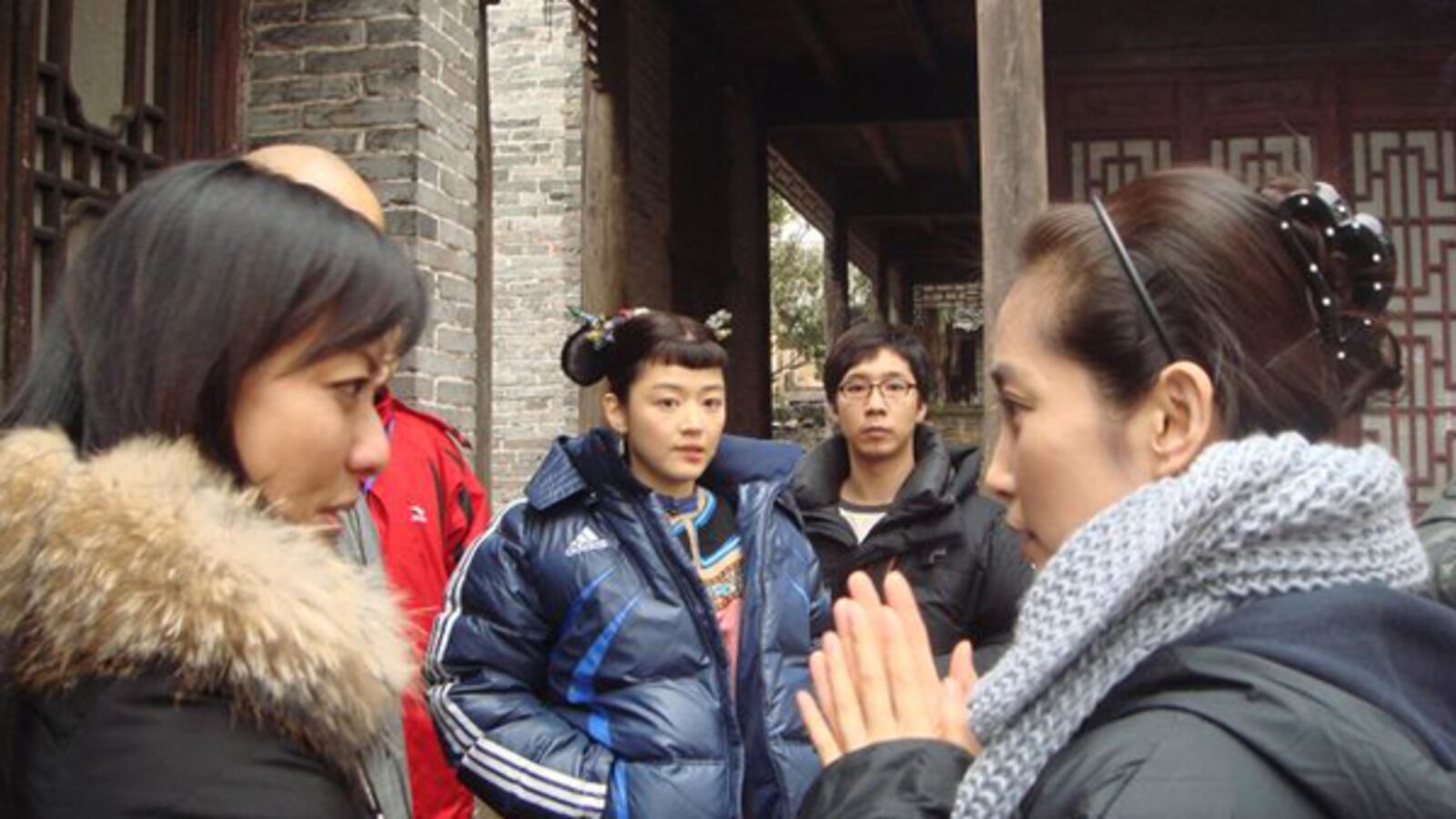The plane touched down into Shanghai Pudong airport. My assistant, Xian, and I disembarked. We were met by official-looking men who whisked us through immigration and baggage and into a waiting car. Wow! I thought. This is great, this is new China! We arrived at the Peninsula Hotel, which is the best hotel in the city. I looked out of my suite to the perpetually gray skies of Shanghai and thought, This is amazing. Everything will turn out well.
I had signed on to produce my first feature film, Snowflower and the Secret Fan, after falling in love with the book by Lisa See. My partner, Wendi Murdoch (also a first-time producer) and I had been working on this since 2007. Wendi and I are close friends and during one of our regular meetings, we started talking about See’s book that we had read independently of each other. We both loved the book and connected over its compelling story, which centers around the universal theme of the bonds of friendship. We knew it should be made into a movie.
Now, we were finally in Shanghai since that fateful meeting 4 years ago. We had already faced changes in the script which led to three screenwriters, and had convinced the talented Wayne Wang to come onboard to direct. We went through a rigorous casting process, dealt with endless paperwork, and had to navigate the challenges of shooting in China, which meant wrangling permits and scouring locations.
I love movies, read voraciously, and was passionate about the Snowflower book—but I was about to learn in the weeks I spent in Shanghai that this ‘knowledge’ is not an entrée into movie producing. There are no shortcuts.
Battling jet lag, I met up with Wendi, who had flown in from New York. We went to meetings with Wayne Wang and Jessinta, our line producer. After listening to all the problems we faced, I thought, “Hmm—maybe this producing thing isn’t as simple as it looks.” After a few days spent in the luxury cocoon of the Peninsula Hotel, we were told that we have to go to Hengdian, the movie capital of Shanghai and the largest film studio in the world. I have to admit, I was a little apprehensive when we were told to bring our own bedsheets, towels, pillows. We loaded up the car and drove for 4 hours, battling intense traffic into Hengdian which is in Zhejiang province. When we arrived, we passed a full-scale replica of the Forbidden City, a Qin dynasty palace and various other amazing sets.

Our ‘hotel’ in Hengdian was built like a convention center, with harsh fluorescent lights and cold tile floors. “Well, this is not the Peninsula Hotel!” I said to Wendi. Xian and I lugged our bags to the rooms. The room was functional at best– a bed with a greasy-looking headboard and gray sheets. I was very grateful that I had brought my own sheets. I made a mental note that the first thing I had to do was to buy cleaning supplies for the bathroom.
When we arrived on set I was amazed to find that what was described in the script had come to life. We were standing in the courtyard of Lily’s house and upstairs was the women’s chamber. Wandering around, we were fascinated by the sheer intricacy of the set. Wayne walked with us, explaining how he intended to shoot each scene. I was shivering as we walked around—it was bitterly cold. More clothes tomorrow, I thought.
We expected to begin shooting as soon as our cast arrived. But later that evening, Wendi received a call telling us that unfortunately one of our key actors had fallen ill and was in the hospital. The actor would not be able to come to work for at least two or three weeks. Our first catastrophe! Two or three weeks, really? The actor was a key player in the movie and there was no guarantee that we would be able to start shooting even then. That’s when Wendi and I had a crash course in producing.
We fielded the panicked calls, encouraged Wayne, who was a trooper and persuaded the rest of the cast to stay. Luckily, the financiers did not pull out but agreed to give us two weeks to find a replacement. We were given a reprieve but it was still quite a tall order. Good actors, it turns out, do not sit around waiting for a call asking them to replace someone in a movie.
Wayne and I started reviewing DVDs of potential replacements. Wendi went into full producer mode and began making phone calls to find a replacement. Fluent in Mandarin and well—being Wendi, she flew to Hong Kong and after many hours persuaded the potential replacement to be in our movie. The rest, as they say, is history.
That was how our producing careers started. Talk about being thrown into the deep end! Since that day, it has been an epic journey of highs and lows. From dirty bathrooms where we took showers in our shoes to being so cold we looked like polar bears as we wore every single item of clothing we had, to the battles to understand and decipher the loads of documents that came our way and having to negotiate terms we did not yet understand.
However, along the way, we learned what we needed to do to get the job done. Our mantra, which grew more important the more we recited it, became, “Do not give up. Get the job done.” We had help from veterans like Wayne and Ron Bass. Though I have to say, I am surprised they never once lost their temper at me when I would ask another inane question! They were probably worried I would burst into tears…
I learned that being a mother and stepmother to four teenagers is good practice for producing. I discovered that I had patience when faced with difficult people and, like the characters Lily and Snowflower in the movie, we too learned the importance of endurance and tolerance. At the end, Snowflower and the Secret Fan is a movie we are proud of, and yes—we will be producing again.
Snowflower and the Secret Fan is currently in theatres nationwide.






